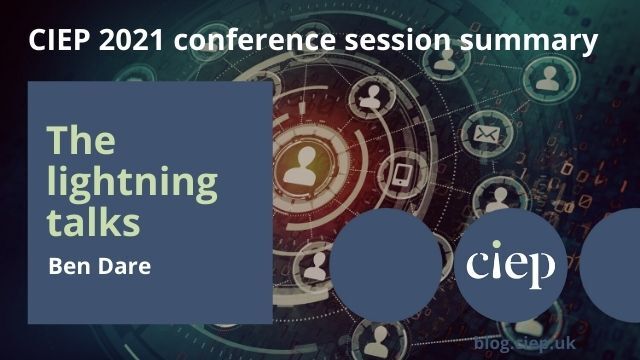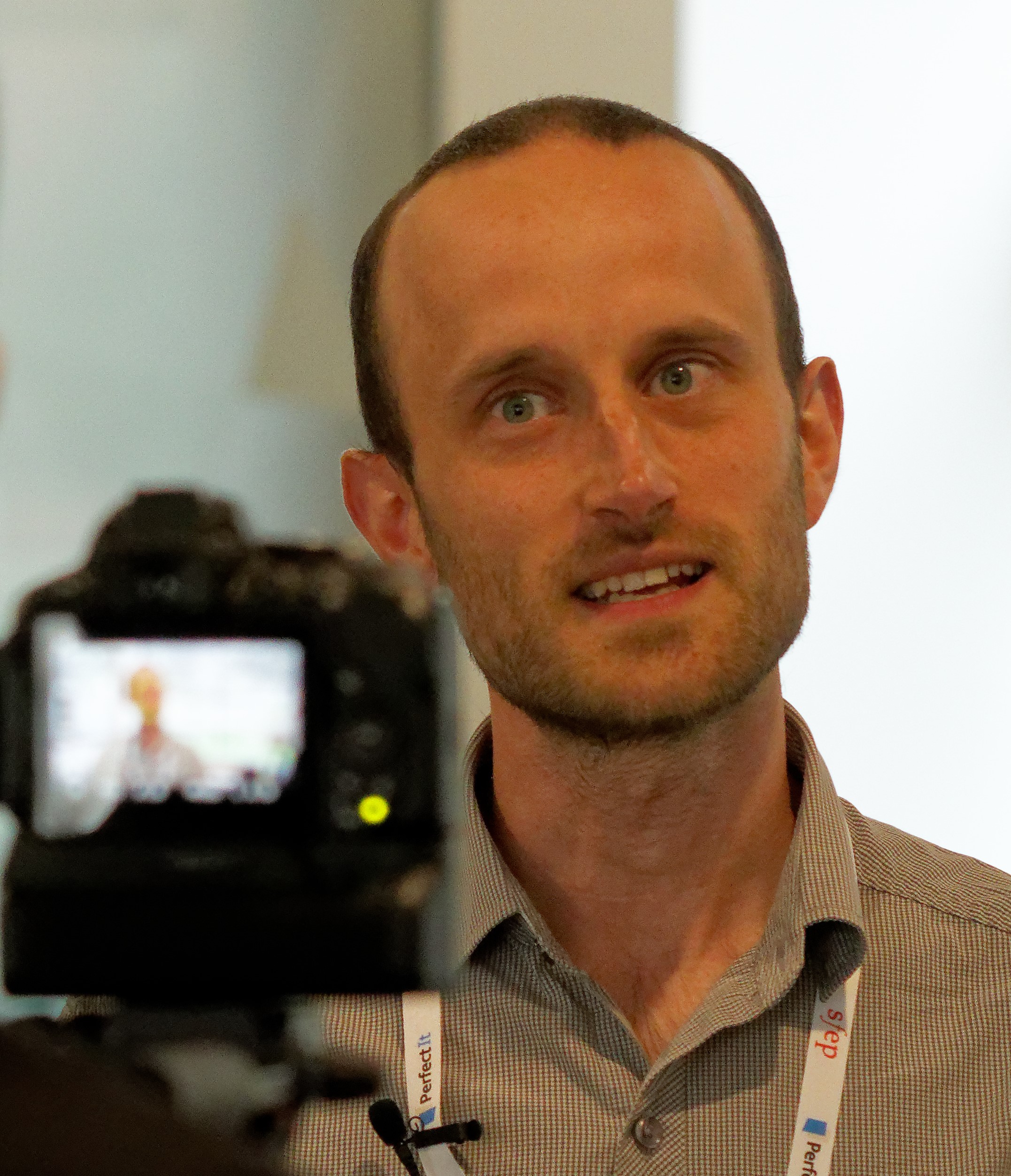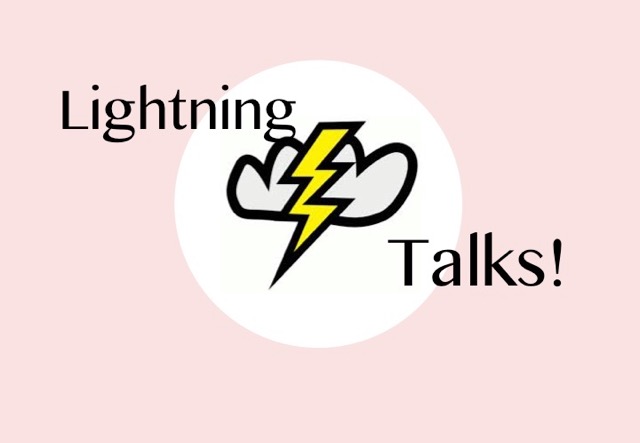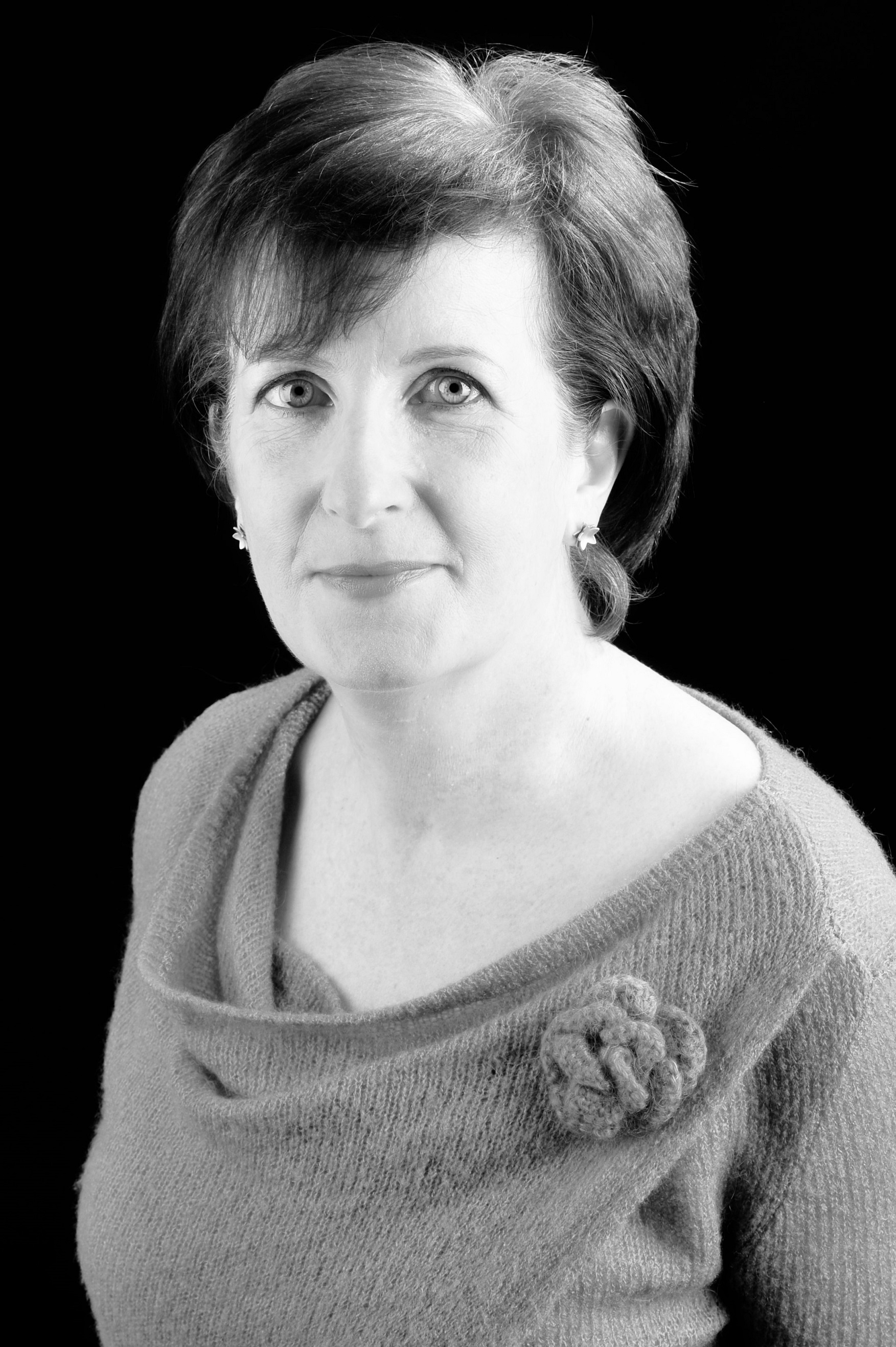This year’s CIEP conference was held online, from 12 to 14 September. Attendees from all over the world logged on to learn and socialise with their fellow editors and proofreaders, and a number of delegates kindly volunteered to write up the sessions for us. Ben Dare reviewed the lightning talks.
 Lightning talks are unique at the CIEP conference – hosted by Robin Black with his usual honest and unexpected insights, the odd flash of self-revelation, and the maintainer of the consistently affirming atmosphere. As quick as each talk is (five minutes – do you fancy giving it a go next year?), I couldn’t possibly fit every pearl into this article. But I’ll try to give you a flavour:
Lightning talks are unique at the CIEP conference – hosted by Robin Black with his usual honest and unexpected insights, the odd flash of self-revelation, and the maintainer of the consistently affirming atmosphere. As quick as each talk is (five minutes – do you fancy giving it a go next year?), I couldn’t possibly fit every pearl into this article. But I’ll try to give you a flavour:
Ema Naito: The most powerful people in the world
Ema works with many Englishes. But despite growing up speaking English, being Japanese means Ema is still spoken to as if English is a foreign language to her. With some awesomely honest thoughts on language and identity – hers and others’ – Ema’s talk certainly made me think. Growing in awareness of language and identity – both our own and other people’s – makes us better editors, Ema says. Editors are powerful. How will you use that power?
Joely Taylor: Bothersome backsides and other photo failures: a brief intro into editing photography
Key takeaways:
- Avoid the dreaded rear-view
- Look for fine details: embarrassing, offensive, not safe, illegal, visible personal details, etc
- Check the caption!
- Are there issues around copyright, printability, suitability, quality?
Wow. What a lot to think about. A superb reminder not to glance over photos while editing and think, ‘Well there’s no text there to worry about, I’ll move on!’
Sam Kelly: How proofreading helped me commentate on football
A proofreader never knows what they’ll get asked to do! So should you be asked to commentate on your next local derby:
- Do your homework (read a guide)
- Keep it clear (don’t give two characters/players the same name)
- Focus (even when boring)
- Watch those changes (midfielder substituted for a winger = moving text from one PDF page to another).
Okay, so football’s not my thing, but I’ll keep this in mind for whatever public speaking I’m asked to do!
Alison Shakspeare: Sussing out self-publishers
To work smoothly with a self-publishing client, ask yourself: What’s the author looking for? And remember these rules:
- Editing/proofreading is always needed
- Something is always missing
- It’s always longer and more expensive than they thought
- Clarity = happy authors.
And with some key questions to ask, Alison shows me it’s good to keep the whole of the publishing process in mind with self-publishing authors. But it sounds like it could be fun!
John Ingamells: Learning Korean
A lightning tour of language – and recent history: did you know that John worked for the British diplomatic service? No? Me neither. The presentation shows how different Korean script is from the English alphabet. The Korean alphabet dates back to 1446 (the language is of course much older). It has fourteen consonants, ten vowels and one bank holiday. But you might find yourself counting in Korean or Chinese, and it’s good to know your audience before you choose your sentence ending. Phew!
Michelle Ward: Bringing history to life
I must admit I didn’t realise the breadth of the re-enactment life. You could meet famous people (Bernard Cornwell and Sean Bean, and Prince Charles). You might make your own clothes, or sew up a bayonet hole at least. You will learn how to:
- Shoot a rifle
- Dress practically
- Cook over a fire
- Dress wounds
- Take an enemy position.
Not forgetting the dances and parades. If banquets get mentioned, I might just be in.
 Ben Dare copyedits/proofreads for projects on sustainable food systems and sustainable living (and almost anything else when asked nicely). His greatest desire is to find a bit more spare time for gardening, but he spends most of his non-work time with family, triathlon training or coastguarding (and, of course, ironing).
Ben Dare copyedits/proofreads for projects on sustainable food systems and sustainable living (and almost anything else when asked nicely). His greatest desire is to find a bit more spare time for gardening, but he spends most of his non-work time with family, triathlon training or coastguarding (and, of course, ironing).
 About the CIEP
About the CIEP
The Chartered Institute of Editing and Proofreading (CIEP) is a non-profit body promoting excellence in English language editing. We set and demonstrate editorial standards, and we are a community, training hub and support network for editorial professionals – the people who work to make text accurate, clear and fit for purpose.
Find out more about:
Posted by Abi Saffrey, CIEP blog coordinator.
The views expressed here do not necessarily reflect those of the CIEP.


 Susan Milligan joined the SfEP in 2000. She works mainly for educational and academic publishers, academic institutions and administrative bodies. She enjoys involvement in the SfEP Glasgow group, which she helped to start up, and is a mentor in proofreading for the SfEP.
Susan Milligan joined the SfEP in 2000. She works mainly for educational and academic publishers, academic institutions and administrative bodies. She enjoys involvement in the SfEP Glasgow group, which she helped to start up, and is a mentor in proofreading for the SfEP.